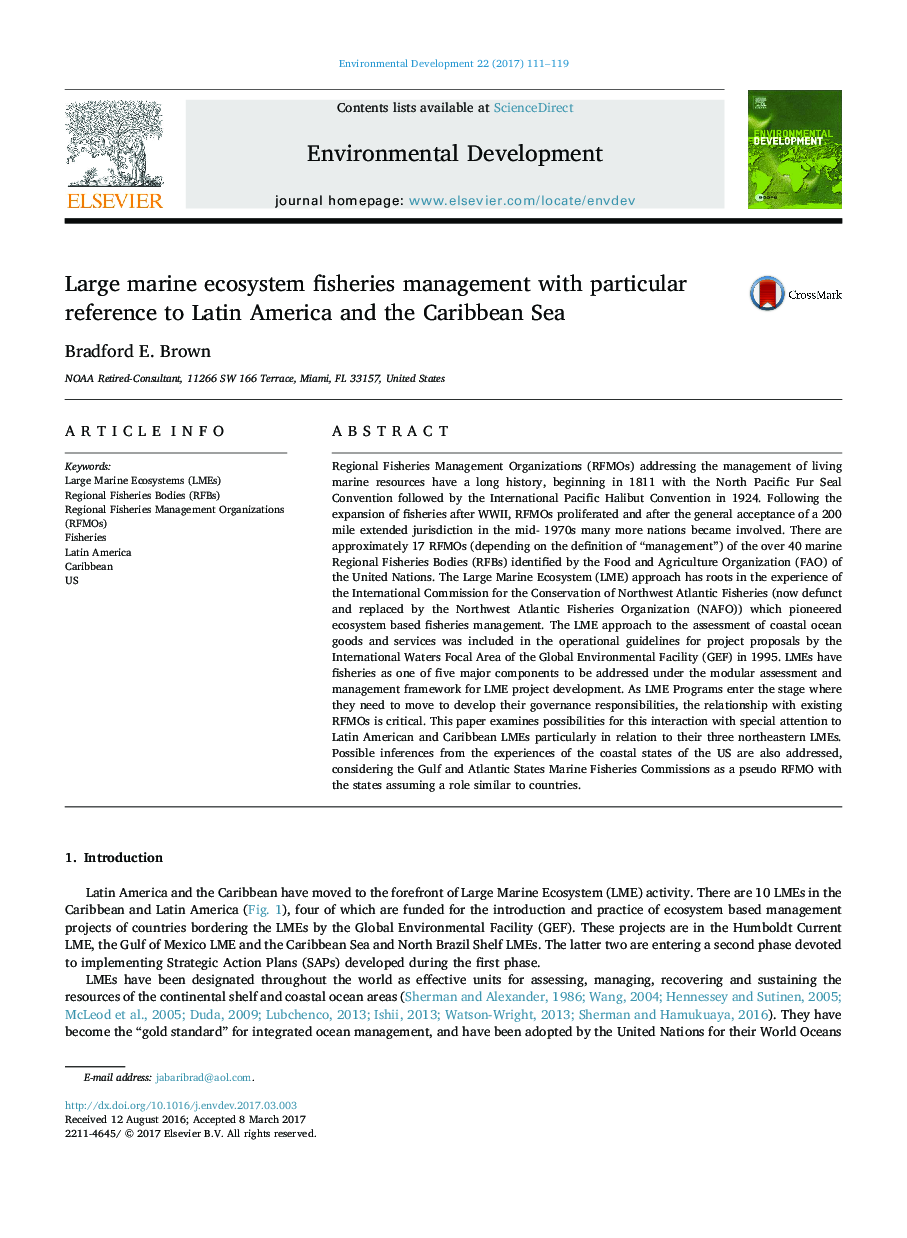| Article ID | Journal | Published Year | Pages | File Type |
|---|---|---|---|---|
| 5744132 | Environmental Development | 2017 | 9 Pages |
â¢A review of RFBs and LME efforts in Latin America and the Caribbean illustrates their importance to each other.â¢Successful LME fisheries in the industrialized world illustrate that it takes time.â¢US East Coast experience indicates lessons to be learned for LME efforts for countries in this region.â¢Complex structures can be successful if all are committed to the LME approach.
Regional Fisheries Management Organizations (RFMOs) addressing the management of living marine resources have a long history, beginning in 1811 with the North Pacific Fur Seal Convention followed by the International Pacific Halibut Convention in 1924. Following the expansion of fisheries after WWII, RFMOs proliferated and after the general acceptance of a 200 mile extended jurisdiction in the mid- 1970s many more nations became involved. There are approximately 17 RFMOs (depending on the definition of “management”) of the over 40 marine Regional Fisheries Bodies (RFBs) identified by the Food and Agriculture Organization (FAO) of the United Nations. The Large Marine Ecosystem (LME) approach has roots in the experience of the International Commission for the Conservation of Northwest Atlantic Fisheries (now defunct and replaced by the Northwest Atlantic Fisheries Organization (NAFO)) which pioneered ecosystem based fisheries management. The LME approach to the assessment of coastal ocean goods and services was included in the operational guidelines for project proposals by the International Waters Focal Area of the Global Environmental Facility (GEF) in 1995. LMEs have fisheries as one of five major components to be addressed under the modular assessment and management framework for LME project development. As LME Programs enter the stage where they need to move to develop their governance responsibilities, the relationship with existing RFMOs is critical. This paper examines possibilities for this interaction with special attention to Latin American and Caribbean LMEs particularly in relation to their three northeastern LMEs. Possible inferences from the experiences of the coastal states of the US are also addressed, considering the Gulf and Atlantic States Marine Fisheries Commissions as a pseudo RFMO with the states assuming a role similar to countries.
